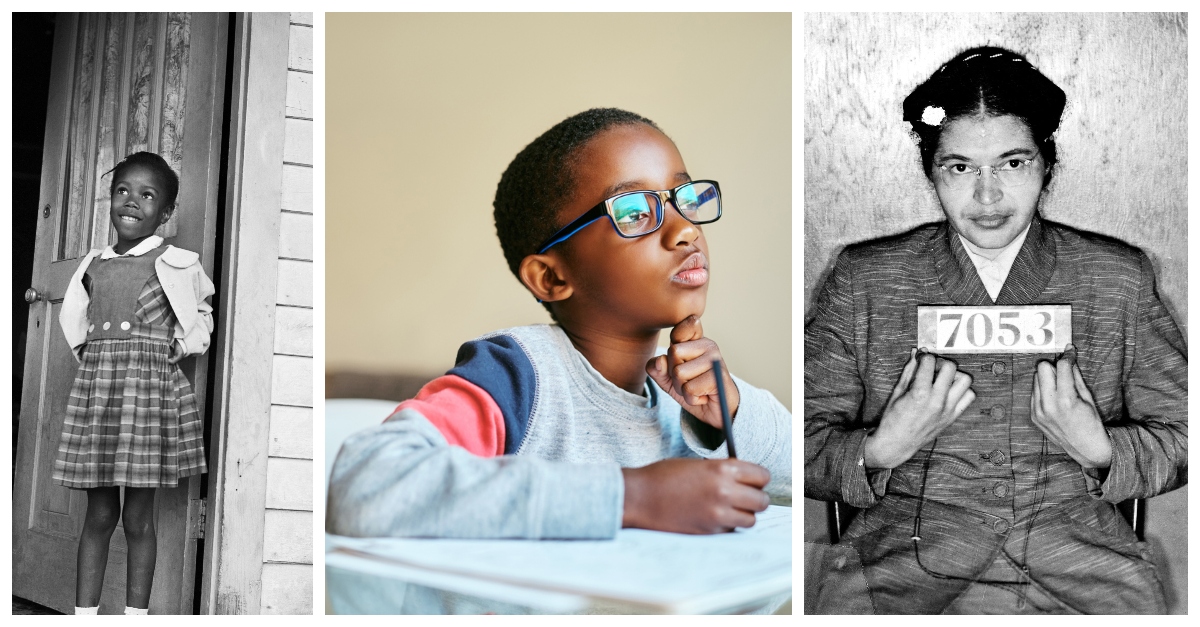
Though it may seem like a mountainous task to explain to your young children how present-day protests actually stem from major events that started hundreds of years ago, the lesson is absolutely necessary. Equipping kids with full and accurate accounts of American history, including Black history, means observing wounds inflicted long ago in hopes that their generation will be a part of the healing process. Afford your children all of the information available to you now, especially because you know how harmful it can be when the full scope of history is omitted from many educational institutions. From toddlers to teenagers, finding age-appropriate content is crucial, but how do we get started when there is just so much to consider?
Here are some useful tips on how to go about reviewing the chronicles of Black history with your entire family.
Start With a Story
Be it within a book or film, begin with a true narrative. Choose a story about school-aged children that your kids will immediately be able to understand and empathize with, such as those of Ruby Bridges or the Little Rock Nine, all of whom dealt with racism while simply trying to get an education. Beginning with personal narratives provides stories to refer back to when digging even deeper into Black history. When children are able to relate a lesson back to a person whose name they know and whose struggle they recognize, a deeper emotional connection is established.
Explain Key Terms
Define words that will inevitably come up while reviewing Black history. Terms such as racism, oppression, and segregation are sure to present themselves, and it's imperative to go over their definitions so that your young ones accurately process the information. As the words come up, point them out, and ask kids to recount their definitions, making sure they comprehend the terms while they also get used to talking about difficult subjects.
Minimize Your Opinion
It's hard to see your own biases, yet easy to project that same miseducation onto your wee ones. Try your best to avoid mass generalizations and assumptions. Go over stories and events carefully while using multiple sources. You want to paint a full and accurate picture in the impressionable minds of your children, and this means supplying them with perspectives outside of your own. Instead of continuously telling your kids what you think, ask them how they feel about particular situations.
Create a Timeline
Begin at the beginning. Make a timeline dating back to when the first ships arrived in the country from the trans-Atlantic slave trade, through Jim Crow laws and the civil rights movement, leading up to mass incarceration and the social justice reforms that activists are working for presently. Navigating Black history means observing the causes and effects that rippled through time and ultimately led to present-day protests calling for social reform.
Black Leaders
Bring attention to great Black leaders throughout history. Tell your family about how George Washington Carver made peanuts into just about anything, how Muhammad Ali always fought for what he believed in, and how Sidney Poitier's determination made him a leading man in Hollywood. With the abundance of legacies sewn into the fabric of Black heritage, it's not difficult to pick from the long list of leaders worth bragging about.
Don’t Forget About Black Women
It would be a mistake to overlook the integral role that Black women have played in African American history. Besides being the mothers who instilled necessary knowledge and resilience into children who were born into unfair circumstances, Black women have always been major players in the fight for freedom and equality. Figures like Harriet Tubman largely contributed to freeing enslaved African Americans, activists such as Ella Baker and Rosa Parks fought against Jim Crow laws, while Katherine Johnson and Mae Jemison made major strides at NASA, proving that Black women have no limits to what they can achieve.
Talk About Triumphs
Though many successes throughout Black history were followed by setbacks, these triumphs should be highlighted. A few examples to include would be Juneteenth, the holiday commemorating the abolishment of slavery; Black Wall Street, a successful area of Black-owned businesses that existed in Tulsa, Oklahoma; and the passing of the Civil Rights Act of 1964, which lawfully prohibits discrimination in public spaces. Though these historical landmarks were met with obstacles and tragedies afterward, especially in the case of the Tulsa race massacre, these events are reflections of what Black people can accomplish, even when the world seems to be against them.
Traveling back in time to look at Black history as a family will surely be an emotional journey. It means facing atrocities that are still happening to African Americans now, but it will also reveal the determination inherited by descendants of enslaved peoples, something every member of your family will be able to learn from.







